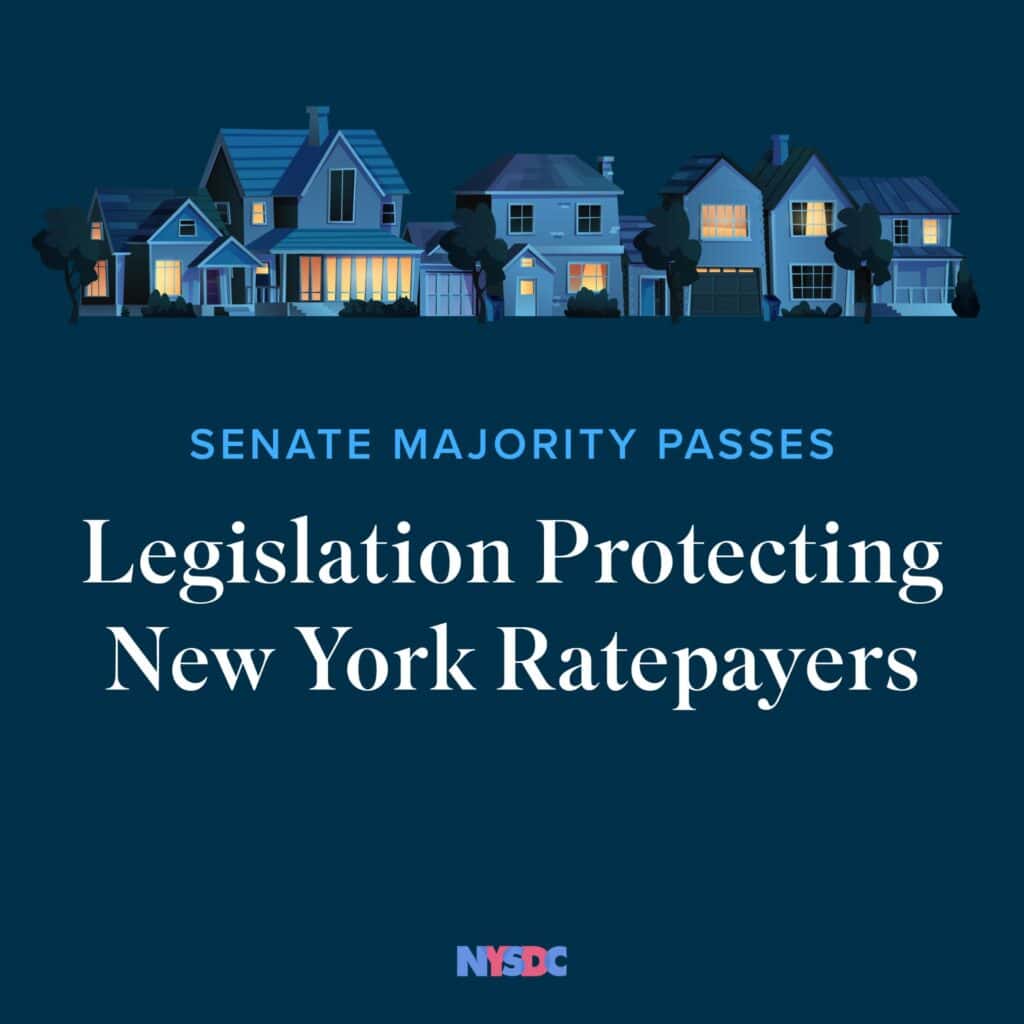
New York State Senate Majority Leader Andrea Stewart-Cousins led the Senate in advancing legislation Tuesday to protect ratepayers in New York State.
The legislative package includes nine bills which fight New York’s affordability crisis by prioritizing the interests of consumers and address the failures of utilities and power producers by holding utility companies accountable.
“Far too often, utility bills are unclear, charges are difficult to understand, and customers become confused and frustrated. New Yorkers have had enough,” Sen. Stewart-Cousins said. “My office has received dozens of calls from Westchester residents concerned about utility company billing practices, seeking clarification on the charges they are receiving, and looking for relief on exorbitant utility bills.”
Aspects of the legislative package advanced on Tuesday include provisions which would require utility companies to explain the methods behind their rate calculations and would bolster resources available to customers.
“This package aims to address outdated practices, protect customers across New York, and hold utility companies accountable. Additionally, our legislation seeks to expand payment plan options and make utilities more affordable for customers,” Sen. Stewart-Cousins said. “I thank my Senate colleagues for helping me advance this legislation which will help families here in Westchester and across the state.”
The legislation passed by the State Senate includes:
- Utility Hikes Economic Impact: This bill would require the Public Service Commission to consider the economic impact of utility rates and charges when evaluating utilities’ proposed rate changes.
- Accurate Meter Readings: This bill directs utilities to file with the Public Service Commission a model procedure for calculating estimated utility bills and to use more actual meter readings.
- Home Energy Assistance Re-enrollment: This bill would require social services districts to automatically re-enroll eligible persons or households for the low-income home energy assistance program (LIHEAP) if they remain eligible.
- Strengthen Utility Storm Response and Compliance: This bill would incentivize better regulatory compliance by utilities through increased flexibility for the Public Service Commission to assess penalties on utilities for violations of the Public Service Law, and to expand emergency response plan requirements.
- Utilities to Adopt the Common Equity Ratio: This bill would require electric corporations, gas corporations, steam corporations and water-works corporations to use standardized return on equity calculations set by the Public Service Commission to prevent unjustifiable rate increases.
- Utility Late Payment Study: This bill directs the Department of State and Public Service Commission to study and report upon disclosure by utilities to credit reporting agencies regarding late payments.
- Limits Fixed Charges: This bill would direct the Department of Public Service to adjust each utility corporation’s residential fixed charge upon such corporation’s filing with the Department regarding rate schedule amendments, to recover only the fixed costs and operation and maintenance expenses directly related to metering, billing, service connections and the provision of customer service.
- NY HEAT Act: This bill aligns utility regulation with state climate justice and emission reduction targets; and repeals certain provisions of the Public Service Law relating to gas service and sale, including the 100-foot rule that obligates utilities to provide gas connections to residential ratepayers at no cost if the ratepayer lives within 100 feet of the main gas line.
- Civil Penalties for False Statements: This bill would establish civil penalties for utilities that knowingly make false material statements to the Public Service Commission in relation to a rate-making proceeding.





